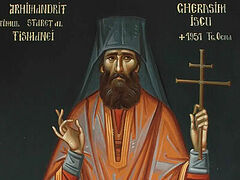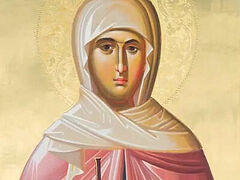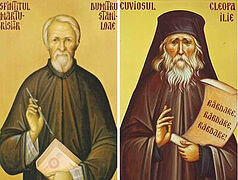Muntenia, Romania, October 4, 2022
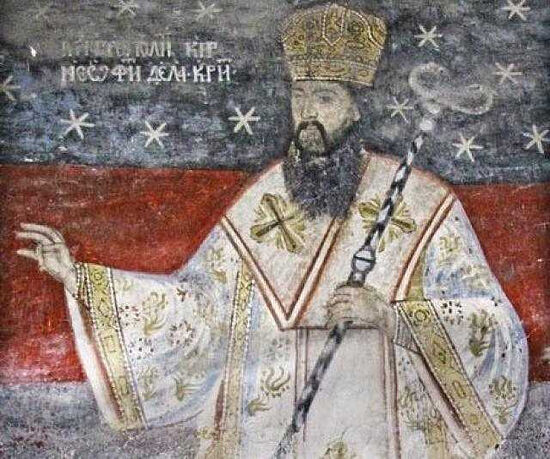 Met. Neofit the Cretan of Wallachia. Photo: basilica.ro
Met. Neofit the Cretan of Wallachia. Photo: basilica.ro
The Synod of the Romanian Orthodox Church Metropolis of Muntenia and Dobrogei has discussed the proposed canonizations of a number of saints lately.
Late last month, the Synod examined the liturgical texts that will accompany the canonization proposals for Elder Dionisie (Ignat) and Elder Petroniu (Tănase), which will be sent to the Patriarchate of Constantinople as these Romanian ascetics were monks of Holy Mount Athos.
The texts were originally composed in Greek by two of their disciples, and the dioceses of the Metropolis of Muntenia sent proposals for improving the Romanian translations.
The Metropolitan Synod will propose that Constantinople canonize these 20th-century ascetics in 2025, when the Romanian Church will also canonize about a dozen ascetics of piety who suffered under communism.
It was also announced that at its next session the Synod will consider the canonization proposal and accompanying liturgical texts for Metropolitan Neofit the Cretan (1690-1753), reports the Basilica News Agency.
“It was said of him that he was a Greek more Romanian than the Romanians. And, because he defended them against the Phanariot ruler Matei Ghica and opposed exorbitant taxes, he was poisoned by his own Greek physician and died as a martyr,” His Beatitude Patriarch Daniel said of Met. Neofit.
“He was one of the most diligent and dynamic hierarchs of Wallachia and had many similarities with St. Anthimos the Iberian,” the Patriarch noted.
The members of the Synod each received a copy of a book about the life and activity of Met. Neofit the Cretan.
***
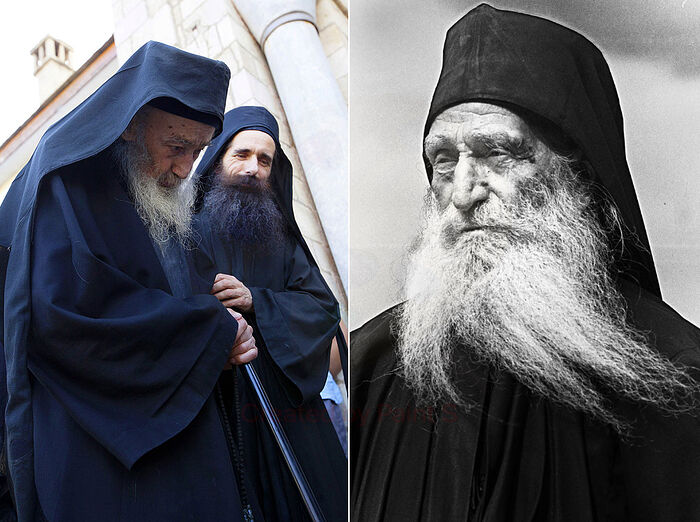 Elder Petroniu (left), Elder Ignatie (right). Photo: pravoslavie.ru
Elder Petroniu (left), Elder Ignatie (right). Photo: pravoslavie.ru
Elder Dionisie (Ignat) was born on September 22, 1909, in the Vorniceni Commune in Botoşani County.
In the 1920s he went with his brother to the Holy Mountain and was tonsured as a monk in 1927.
Revered by monks and pilgrims from all over the world, Fr. Dionisie distinguished himself in his 78 years of monastic life on the Holy Mountain as a great hermit and the confessor of many Athonite fathers, abbots, hieromonks, hermits, monks, and pilgrims, including Elder Joseph of Vatopedi, a spiritual child of St. Joseph the Hesychast.
He was recognized as a skilled worker of the Jesus Prayer. Fr. Dionisie also had close spiritual ties with St. Paisios, the Hieroschemamonk Ioan Guțu, and Archimandrite Petroniu Tănase, the abbot of the Romanian Prodromu Hermitage.
Elder Dionisie reposed in the Lord on April 11/28, 2004, at the age of 95, being considered one of the greatest clerics of the Holy Mountain.
Elder Petroniu (Tănase) was born in Fărcaşa, Neamţ County on May 23, 1916.
He joined Neamţ Monastery, where he became a monk on September 22, 1942. From Neamţ, he was called to Antim Monastery of Bucharest, where he continued his intellectual formation, graduating the Faculty of Orthodox Theology, and attending courses of mathematics and philosophy. In 1947, he was ordained hieromonk for the Patriarchal Cathedral, and then sent to teach homiletics, catechetics and pedagogy at the Monastic Seminary of Neamţ Monastery.
A hard period for the missionary monk began with the onset of the totalitarian regime, and he was forced to leave Neamţ Monastery in 1959. It was with much courage and zeal for the Church Christ, our Savior, and the same never-ending love for the monastic life that he retired to the community of Sihăstria Monastery in 1964, where he lived till 1978, when he left for the Romanian Skete of Prodromu on Mt. Athos.
The monks of Prodromu elected Fr. Petroniu to be their abbot seven years after his arrival there. During his time as abbot of the Skete (from 1984), he completed much restoration work there. During his abbacy, the walls of the cathedral were painted, a new guesthouse was built, and a convenient road was constructed connecting the Skete to the Lavra.
The blessed Elder was a great spiritual authority not only on Mt. Athos, but also throughout Greece and in his native Romania. The monks of Romanian and Moldavian origin all considered him their spiritual father. His book of spiritual contemplations, The Doors of Repentance, has been translated into several European languages.
Fr. Petroniu was asked to be Patriarch of Romania twice, but he humbly refused.
He reposed in the Lord on February 22, 2011.
Metropolitan Neofit the Cretan was born in 1690, and traveled to Wallachia when he was already a hieromonk and served for a time as teacher of the children of the ruler Constantin Mavrocordat.
He was elected titular bishop of the Metropolis of Mirelor Lichiei in 1737 and was later appointed to the Metropolis of Ungrovlahia.
Although he was a Greek, he proved to be a very good leader for the Romanians. He defended them against the abuses of a Phanariot ruler, increased the Metropolis’ income, freed the Roma slaves, directed the country’s schools, and established schools of his own, where peasant children could learn for free. He also founded and endowed the Metropolitan Library.
He reposed in the Lord in Bucharest on June 16, 1753.
Follow OrthoChristian on Twitter, Vkontakte, Telegram, WhatsApp, MeWe, and Gab!

